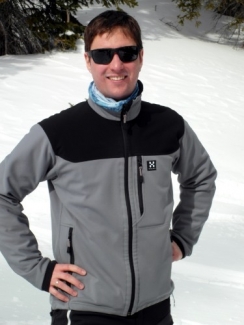Mayle
Nickname: Schnapps-Meister
Specialization: Ultracold molecular collisions.
PhD: University of Heidelberg, 2009.
With group: 2010-12
Quotes:
"Can't you just use Rydberg atoms for that?"
"They are just some random numbers."
Web: http://grizzly.colorado.edu/~mima4440/
Current Whereabouts: Bürkert Fluid Control Systems, Karlsruhe, Germany
Mayle Publications in the Group
Statistical Aspects of Ultracold Resonant Scattering-- M. Mayle, B. P. Ruzic, and J. L. Bohn, Phys. Rev. A 85, 062712 (2012).
Scattering of Ultracold Molecules in the Highly Resonant Regime -- M. Mayle, G. Quéméner, B. P. Ruzic, and J. L. Bohn, Phys. Rev. A 87, 012709 (2013).

Bürkert Fluid Control Systems, Karlsruhe, Germany


 The Physics Frontiers Centers (PFC) program supports university-based centers and institutes where the collective efforts of a larger group of individuals can enable transformational advances in the most promising research areas. The program is designed to foster major breakthroughs at the intellectual frontiers of physics by providing needed resources such as combinations of talents, skills, disciplines, and/or specialized infrastructure, not usually available to individual investigators or small groups, in an environment in which the collective efforts of the larger group can be shown to be seminal to promoting significant progress in the science and the education of students. PFCs also include creative, substantive activities aimed at enhancing education, broadening participation of traditionally underrepresented groups, and outreach to the scientific community and general public.
The Physics Frontiers Centers (PFC) program supports university-based centers and institutes where the collective efforts of a larger group of individuals can enable transformational advances in the most promising research areas. The program is designed to foster major breakthroughs at the intellectual frontiers of physics by providing needed resources such as combinations of talents, skills, disciplines, and/or specialized infrastructure, not usually available to individual investigators or small groups, in an environment in which the collective efforts of the larger group can be shown to be seminal to promoting significant progress in the science and the education of students. PFCs also include creative, substantive activities aimed at enhancing education, broadening participation of traditionally underrepresented groups, and outreach to the scientific community and general public.